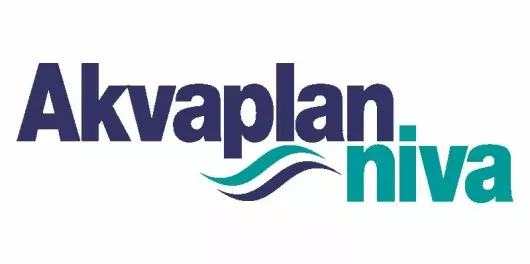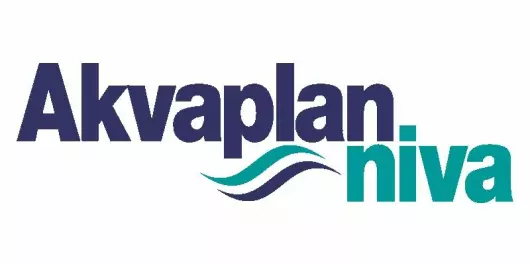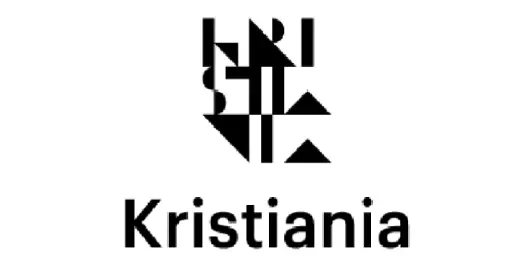Ledig stilling på Universitetet i Oslo
Blindern og Urbygningen (Foto: Wikimedia og Colourbox)
Full time permanent position (Division for Research Computing)
Deadline: 15.08.2021
Universitetet i Oslo
The University of Oslo is Norway’s oldest and highest ranked educational and research institution, with 28 000 students and 7000 employees. With its broad range of academic disciplines and internationally recognised research communities, UiO is an important contributor to society.
The University Center for Information Technology (USIT) provides infrastructure, IT services and IT solutions for both the University of Oslo and the higher education sector in Norway. USIT is one of the largest IT professional environments in Norway, with more than 200 permanent employees and with a turnover of more than 260 million NOK. We work with a wide range of exciting technical solutions based on future-oriented technology. USIT places great emphasis on providing its employees with challenging and educational tasks that provide excellent opportunities for professional development.
Full time permanent position at the Division for Research Computing – University Centre for IT - University of Oslo
Special position for scientific computing support for the Centre for Molecular Medicine Norway (NCMM)
About the position
This position is aimed at those who want to work at the intersection of information technology, research, and research methods, together with the Department for Research Services at the University of Oslo’s Centre for Information Technology (USIT). The main task of this position is to perform scientific computing support at a fairly research domain integrated level within the NCMM.
The Centre for Molecular Medicine Norway (NCMM) was established in 2008 and is the Norwegian node in the Nordic EMBL Partnership for Molecular Medicine. NCMM is a joint venture between the University of Oslo, Health Region South-East and the Research Council of Norway. In 2017, NCMM merged with the Biotechnology Centre of Oslo and now has altogether 11 research groups. The overall objective of NCMM is to conduct cutting edge research in molecular medicine and biotechnology. NCMM focuses on precision medicine and systems technologies with expertise in computational biology, genome medicine, as well as chemical and structural biology. The NCMM IT infrastructure serves approximately 100 scientists and consists mainly of 12 Linux servers and NAS storage capacity.
The Department for Research Infrastructure is located in the Division of IT in Research. USIT is responsible for the operations, development, and user support for IT solutions and services at the University of Oslo (UiO). USIT is one of Norway’s largest public IT environments with 200+ employees. We work with a broad range of future-oriented technologies across a large set of interesting problems. We emphasize giving employees challenging opportunities, providing the foundation for rich learning and personal development.
The division as a whole is among other things responsible for tasks under the mandate of Uninett Sigma2, the organization for national collaboration for storage and High Performance Computing (HPC). The department collaborates with CERN in operating experiments as part of the Worldwide LHC Computing Grid (WLCG) and the Nordic Datagrid Facility (NDGF). In PRACE (Partnership for Advanced Computing in Europe) the department has responsibilities in HPC operations for the Nordic Tier-1 resources, for experimenting with new technologies for the future of HPC, and in prototyping of Exascale-ready software solutions. Similar activities are also pursued through our involvement with the European Open Science Cloud (EOSC) and the Nordic eInfrastructure Collaboration (NeIC). Locally at UiO, the division has responsibility for the Services for Sensitive Data (TSD) and its HPC cluster, Colossus. TSD is Norway’s largest special purpose eInfrastructure, primarily serving the needs of health researchers in Norway and European projects such as Tryggve2. UiO is also part of the Lumi consortium through Uninett Sigma2, Lumi is a pre-exascale HPC system funded by EuroHPC.
The division has had a long-term relationship with NCMM, and will now hire a full-time position in our staff with the main purpose of serving NCMM’s IT needs. The position will be anchored at USIT as to ensure the ability to utilize the large USIT competence pool, and provide scientific computing support for NCMM. The position targets advanced IT-based research support up to a level of installing data analysis pipelines, setup specialized databases, moving pipelines between infrastructures such as different HPC and cloud-computing platforms, organizing large-scale storage, advanced frontend to visualize research results and to make them publicly available. Participation in writing the IT-parts of research grants is expected, as is part-taking in the planning and procurement of research eInfrastructure for NCMM.
More information:
- University of Oslo’s Centre for Information Technology: https://www.usit.uio.no/
- Centre for Molecular Medicine Norway: https://www.med.uio.no/ncmm/english/
- The Department of IT in Research: https://www.usit.uio.no/om/organisasjon/uav/itf/
- The Section for Research Services: https://www.usit.uio.no/om/organisasjon/itf/ft/index.html
Detailed work description
You will be responsible for solely or as part of a team:
- Deploy scientific computing software from source code or binary forms on a number of High Performance Computing Linux CPU and GPU servers. The deployment often involves efficiently automating the software deployment process.
- Maintaining and adapting (in Perl, Python and C/C++) complex software pipelines that contain an increasing number of software dependencies to function properly.
- Documenting the scientific computing environment both in terms of the number/type of applications, their versions with the goal to make the IT infrastructure easier to use by the NCMM scientists.
- Capacity planning to ensure that the NCMM IT infrastructure can accommodate the scientific computing requirements of the scientists.
- Maintaining and developing NCMM infrastructure, consisting of physical and virtual servers, various storage and network components etc.
- The candidate will be interacting both with the Life Science and IT personnel. Frequent interaction with the NCMM life scientists is required in order to obtain a good understanding of their scientific domain and help them use the facilities in the most efficient manner.
- Most work-days will be spent physically at the NCMM locations.
Qualification requirements
- Bachelor’s Degree in Computer Science or a combination of Computer Science/ Bioinformatics. Documented alternative experience can replace this formal requirement. A Master of Science within the field is required for position as Senior Engineer, and ä PhD degree will be an advantage.
- At least 3 years of documented previous exposure in an international R&D environment
- Good knowledge of Python 2.x/3.x, C/C++ and Perl (5.x/6.x) programming. Ability to install from source and troubleshoot scientific computing packages on Linux and Windows servers.
- Good knowledge of Bash shell scripting.
- Good knowledge of version control (svn/git), gdb and other scripting language debugging tools is needed.
- Knowledge of containers (e.g., Docker, Singularity) for scientific computing infrastructures.
- Exposure to deep learning frameworks (e.g. PyTorch and TensorFlow) or a willingness to learn about deep learning.
- Knowledge of CFEngine and Ansible for configuration management.
- Good knowledge of SQL and the MariaDB/MySQL/Postgres RDBMS environments is important.
- Intermediate knowledge of Linux server (RHEL, CentOS) administration: yum package management, web server and LVM administration, qemu/kvm virtualization, ability to use kickstart to automate Linux workstation and server deployments, NFS server administration.
- Good understanding of networking technologies and experience with network equipment
- Ability to communicate with non-technical users and help Life Scientists to use complex infrastructures.
- Capability to communicate with life science scientists is of critical importance. The selected candidate is expected to maintain a positive working relationship with scientific staff and other groups.
Preferred additional skills
- Knowledge of SLURM and exposure to supercomputing queue/ batch system environments to assist scientists to use National and European supercomputing facilities will be an advantage.
- Exposure to genomics, transcriptomics, chemoinformatics and structural biology scientific applications is considered an advantage.
- Good grasp of GPU technologies is an advantage.
For a senior engineer there is a much higher expectation to the ability to perform major tasks independently, and to lead smaller projects.
Personal skills
- Good interpersonal skills and command of the English language are essential.
- Good time management skills and ability to work under pressure to meet deadlines.
We offer
- The position is posted as a “senior engineer” (SKO 1181) or an “head engineer” (SKO 1087), and the hired person will get a position according to the experience and qualifications held.
- The salary level will be for senior engineer within the start range of 626,100 NOK to 752.800 NOK, while head engineer will have a range of 574.700 NOK to 637.900 NOK.
- attractive welfare benefits and a generous pension agreement, in addition to Oslo’s family-friendly environment with its rich opportunities for culture and outdoor activities
How to apply
The application must include:
- cover letter statement of motivation
- CV (summarizing education, positions and academic work)
- copies of educational certificates (academic transcripts only)
- evt. documentation of english proficiency
- list of reference persons: 2-3 references (name, relation to candidate, e-mail and phone number)
The application with attachments must be delivered in our recruiting system.
Formal regulations
Interviews with the best qualified candidates will be arranged.
According to the Norwegian Freedom of Information Act (Offentleglova) information about the applicant may be included in the public applicant list, also in cases where the applicant has requested non-disclosure.
Inclusion and diversity are a strength. The University of Oslo has a personnel policy objective of achieving a
balanced gender composition. We also want to have employees with diverse expertise, combinations of subjects, life experience and perspectives. We will make adjustments for employees who require this.
If there are qualified applicants with special needs, gaps in their CVs or immigrant backgrounds, we will invite at least one applicant in each of these groups to an interview.
Contact information
For more information about the position, contact the:
- Director of the department Gard Thomassen at 93674926, gardot@usit.uio.no
Submission deadline: 15th of August 2021
The engagement is to be made in accordance with the regulations in force concerning State Employees and Civil Servants, and the acts relating to Control of the Export of Strategic Goods, Services and Technology. Candidates who by assessment of the application and attachment are seen to conflict with the criteria in the latter law will be prohibited from recruitment to UiO.
Apply for position














